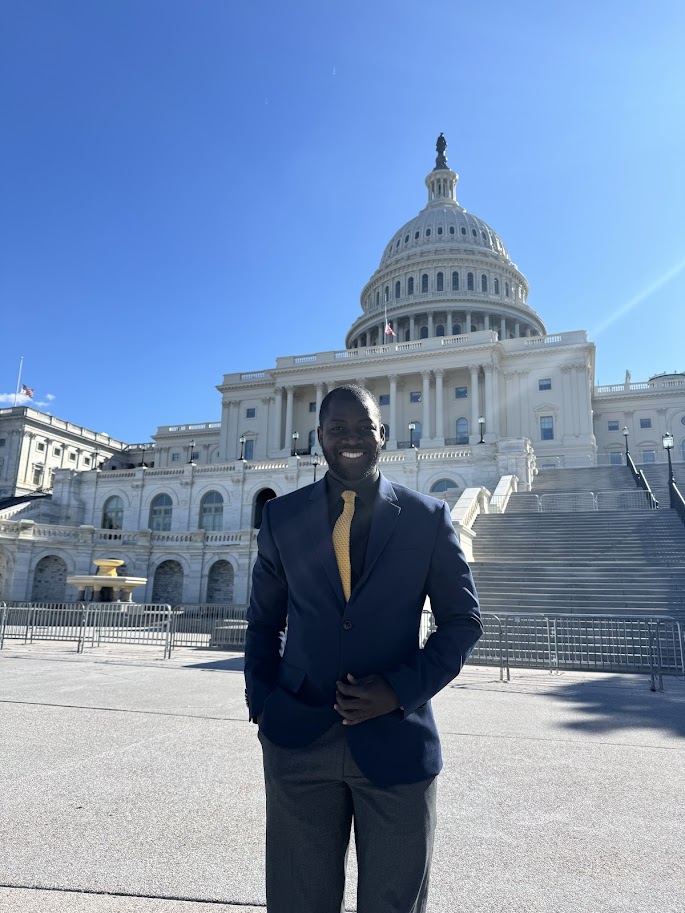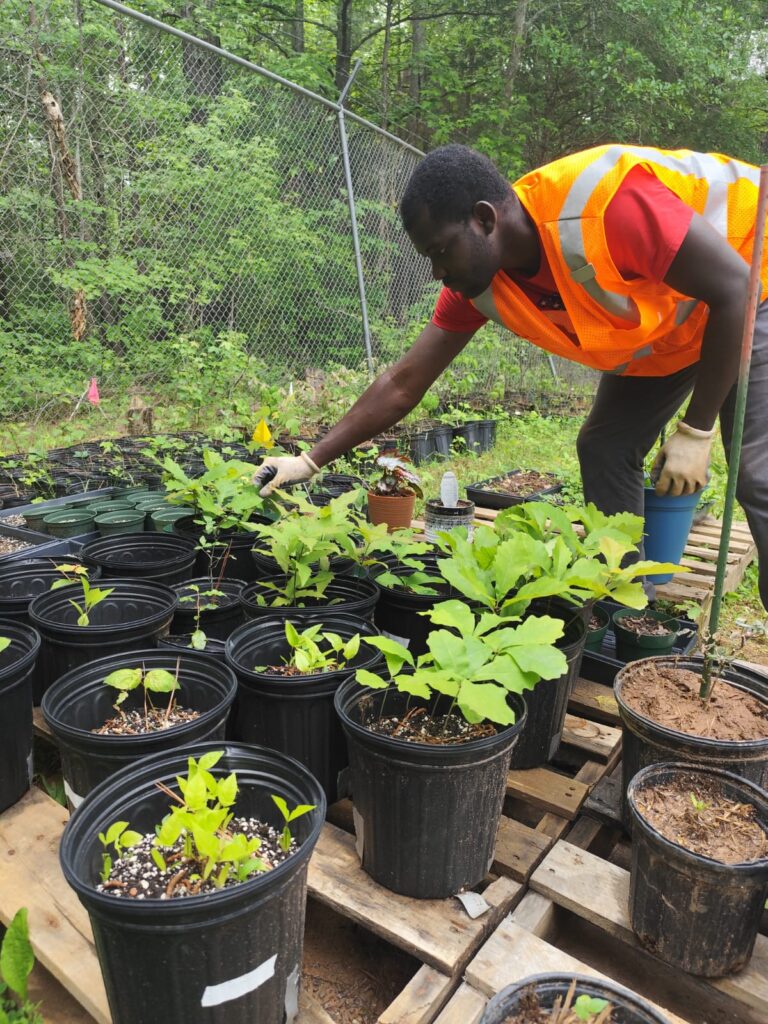ESA’s Katherine S. McCarter Graduate Student Policy Award (GSPA) recognizes graduate students who are passionate about science and policy. Since 2007, ESA has been bringing GSPA awardees to Washington, D.C. for policy and communications training, career development and meetings with policymakers. The 2025 cohort of ten students includes Raymond Erskine, who shares his perspective on science policy and what it was like to participate in this year’s events. His views are his own, and not necessarily those of ESA or his home institution.

Photo by Catherine O’Riordan
As a Ph.D. student at Clemson University, my research examines how different tree species respond to long-term drought stress in the forests of the Great Smoky Mountains National Park, a biologically rich and climatically sensitive region located in the Appalachian Mountains of North Carolina and Tennessee. I never imagined I’d find myself walking the halls of Congress, discussing science funding and environmental policy with legislative staff. Yet, thanks to the 2025 Katherine S. McCarter Graduate Student Policy Award (GSPA) from ESA, I had the opportunity to do exactly that.
My interest in science stems from a growing awareness that ecological research, while essential, is only one part of the equation in solving environmental challenges. The other part lies in how that science is used, communicated and integrated into policy. As global change accelerates, the need for clear, science-informed decisions about forest management, conservation and funding has never felt more urgent. The GSPA provided help to better understand how research can shape, and be shaped by, the policy landscape.
Through the GSPA training and ESA’s Hill Day, I gained valuable insight into how federal policy is crafted and how scientists can engage effectively with lawmakers. I learned to distill complex ecological issues into accessible talking points, frame them in ways that resonate with different audiences, and communicate why basic research matters, not just to science but to society at large. Meeting with congressional staffers underscored how much they value hearing from early-career scientists and graduate students. Contrary to my assumptions, these conversations weren’t one-way briefings. They were mutual exchanges where curiosity, questions and real interest in our work came through clearly.

Photo by Rafael Barbizan Sühs
One of the most powerful moments for me was meeting with the staffers from my home state, South Carolina. I spoke about how federal investments in the National Science Foundation directly support my fieldwork on drought resilience in the Appalachian forests. That conversation helped me see how local research connects to national priorities, and how personal stories like mine can help humanize the impact of federal science budgets.
Since participating in the GSPA, I’ve felt more empowered to engage with policy beyond the program. I’ve been following legislation on forest resilience and drought policy more closely, like the Fix Our Forests Act and Protect the West Act. The experience also strengthened my desire to mentor other students on the importance of civic engagement in science careers.
To other early-career scientists and graduate students considering science policy, I offer this: you don’t need to be a policy expert to make a difference. What you do need is curiosity, the willingness to listen and the courage to bring your scientific voice into new arenas. Programs like the GSPA make it possible to take that first step with confidence and support.
In a time of growing political polarization and limited federal funding available for ecological research, the need for scientists who can communicate clearly and advocate constructively is more important than ever. The GSPA helped me find my voice in that space, and I’m grateful to ESA for investing in young ecologists who want to be part of that bridge.
To other early-career scientists and graduate students considering science policy, I offer this: you don’t need to be a policy expert to make a difference. What you do need is curiosity, the willingness to listen and the courage to bring your scientific voice into new arenas.
– Raymond Erskine, 2025 GSPA Awardee
